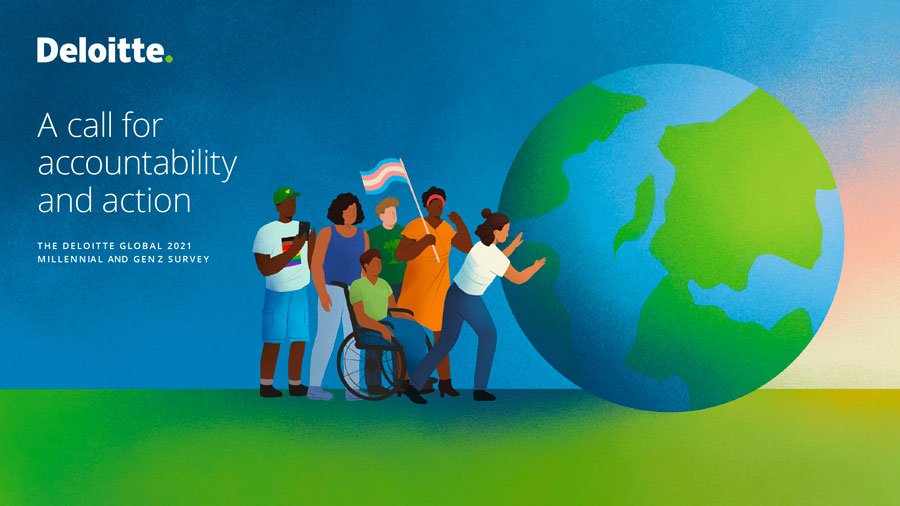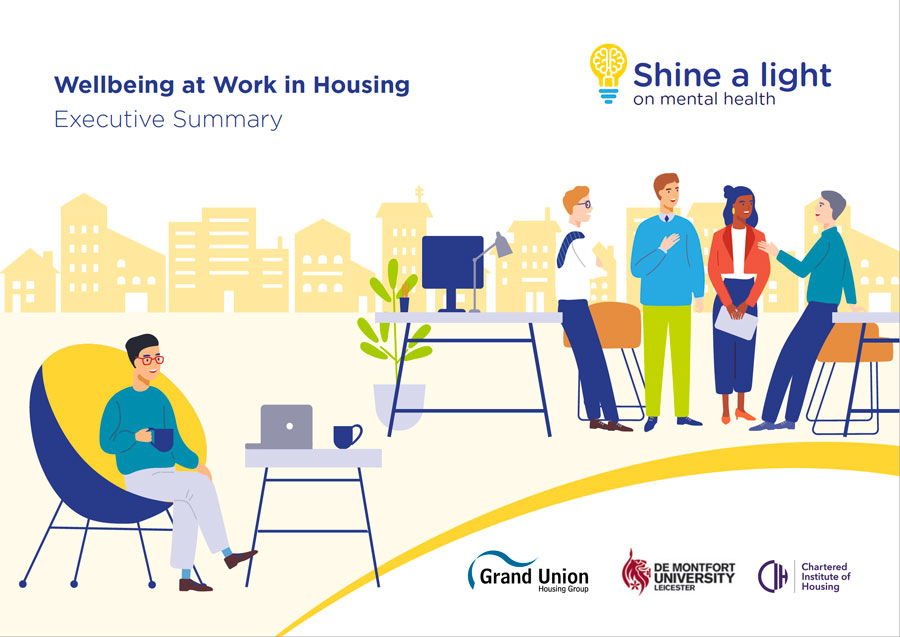Shine a light
The drive to tackle mental ill-health across the housing sector, from tenants to chief executives

INNOVATION & IMPROVEMENT
Image: Istock

Aileen Evans
Group Chief Executive, Grand Union Housing Group
How are you?
How often do we hear or utter those words and how often do we really mean them, or indeed the answers we respond with? And yet, really listening to the answer or being able to truthfully answer the question could mean the difference between life and death.
At the end of June, I stepped down as President of the Chartered Institute of Housing (CIH), having had the privilege of spending 18 months as an ambassador for the professional body that has given me so much. There are many great things about undertaking the presidency and one of these is to champion a cause.
Mental health campaign
For a whole range of reasons, I chose to champion mental health. I wanted to raise awareness, help landlords and, as it turned out, a few other organisations raise their games and raise some cash for the mental health charity Mind. In planning the campaign, I had no inkling of what was to come and that the pandemic would turn our world upside down and cause so much misery for so many.
I had thought that I would be travelling around the country and maybe even experience the odd trip abroad (the CIH has branches in Hong Kong, China, Australia and Canada) connecting with members, networking and speaking at conferences and carrying our campaign messages around mental health far and wide.
Instead, I sat in my kitchen, experiencing my own mental health challenges brought on by lockdown and fear of COVID-19. I have tried to support family, friends and colleagues while not being able to see them physically, and doing the best I could to follow the advice I’ve freely given others over the years. And so, the phrase ‘How are you?’ took on a new significance as I typed it into an instant message, an email or asked the question over Skype or Teams.
Support on the journey
Some organisations had been doing really good stuff about colleague wellbeing and mental health support well before the pandemic. Others weren’t so well prepared and so one of the things I wanted to do was to provide some resources so they had somewhere to start wherever they were on that journey.
I had come to the conclusion some time previously that the context for my colleagues at Grand Union had changed. Mental health support was difficult for our customers to come by and staff were seeing the impacts of poverty brought on by austerity and a whole range of other challenges. On top of this staff were experiencing their own challenges. As employers, we knew we needed to do something even before the pandemic. COVID-19 accelerated that.
Shine a light
We released our first guide, Shine a Light, at the presidential dinner in 2020 – probably one of the last events I saw people at. It is a publication for housing organisations that provides a toolkit to support the creation of an open culture around mental health.
Our colleagues at Grand Union shaped it and we worked with the charity Mind and the CIH to develop it too. It’s a practical guide with some good practice examples.
We then turned our focus to how we could work to engage with customers with mental health challenges. In this work we were supported by TPAS and we listened to what customers had to say.
It was never the intention to turn housing staff into fully fledged mental health support workers – only to give them a few simple tools around communication. I think that sometimes we do nothing because we’re afraid of doing the wrong thing and I wanted to try to help address this.
Next generation
Our third piece of research started out life as a piece of work to help us understand what we needed to do to attract the talent we need in the sector and retain it. From the Deloitte Global Millennial Survey, we know that younger people are the most anxious in the workplace and if we are serious about succession-planning properly then taking steps to support younger people, in particular, is vital for our sector.
We had a captive audience of chief executives on the Campbell Tickell WhatsApp group and we took the opportunity to ask them how they were and what would make things better for them. The resulting study into wellbeing in the housing sector by Professor Jo Richardson (the new CIH President) and Andrew Mitchell of De Montfort University is a first for the sector and contains some really practical steps that we can take to support each other, as well as a bit of advice for the government.
Our mental health crisis is not going away anytime soon and we have a moral responsibility to be better. It makes good business sense too, as the economic and social cost of mental ill health in England was £119 billion last year – it’s the biggest single cause of absence from work.
“Our mental health crisis is not going away anytime soon and we have a moral responsibility to be better. It makes good business sense too, as the economic and social cost of mental ill health in England was £119 billion last year – it’s the biggest single cause of absence from work.”
Keep the light on
The Shine a Light work is something that as a profession we need to make sure lasts well beyond the pandemic – our colleagues and our customers need it to.
Above all, I wanted to start a conversation in the sector about mental health. To do that, I started conversations by asking people how they felt, I spoke about suicide, the menopause, alongside being candid about my own mental health journey and that of those around me.
One of the best ways to initiate that conversation is by using those three little words: how are you? And to say them with the intention of really listening to the answer and being prepared to hear and act upon it if necessary. In that way we will create organisations where our colleagues will be able to answer that question honestly and tell us when they’re not okay, safe in the knowledge that they won’t be judged and will be supported.
That would be the best legacy of all.




